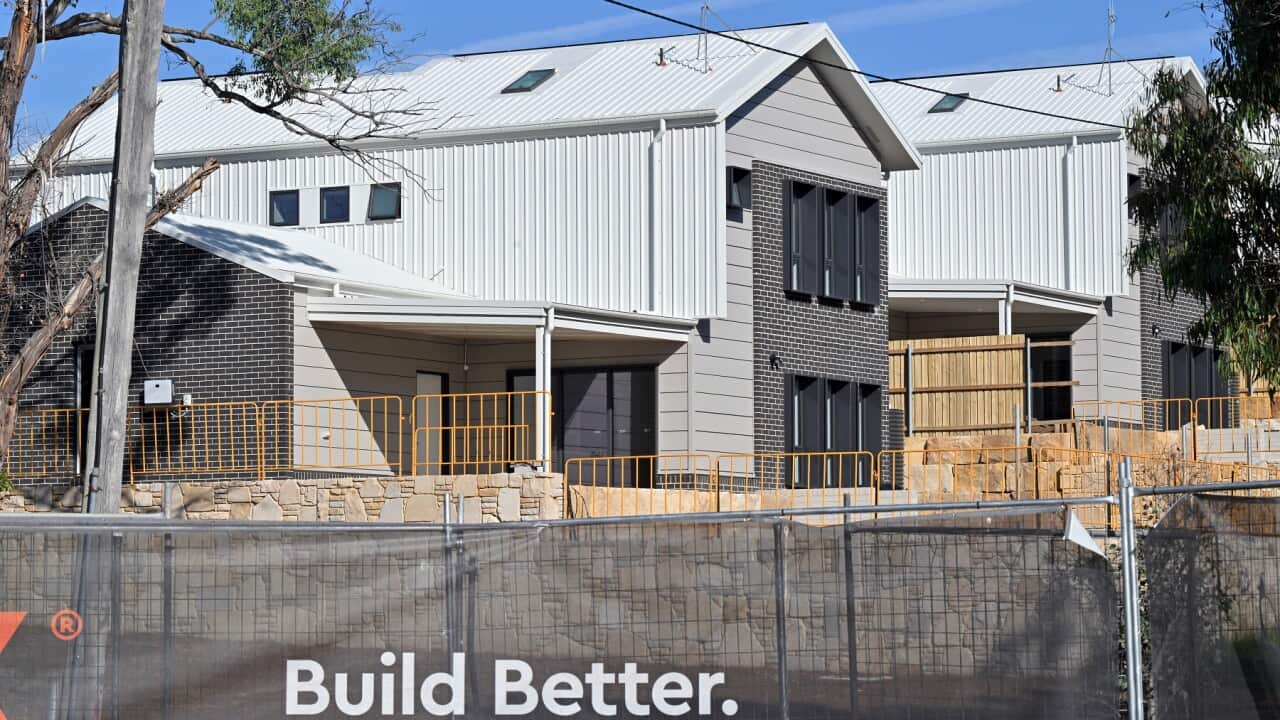English
On the fringe of the Nullarbor on Yalata land there are thousands of western myall acacia trees.
Known to the Anangu as Kyatah, they are a traditional source of shelter and slow burning fuel.
The younger men have created a growing enterprise harvesting the dead trees for firewood.
One of the workers here is Erwin Mungee.
"We get up in the morning, come for work, go for a ride, get wood, come back and drop the wood and cut the wood with the big saw."
The group manager John Buckskin says only dead trees that wildlife are no longer using are harvested.
"Even if the gardia wood is not dried up and died and still has life in it, we don’t touch it. We let it go and keep growing because we know there’s wildlife in it as well and still using it."
Yalata is also experimenting with growing acacia from seed.
John Bridley has been with the business from the start.
"We started with nothing, it was just the trailer, and the four guys with a chainsaw.”
Now they are selling around 15-hundred bags of firewood each month, distributing to outlets around the state.
Through the job, John Bridley has got his forklift, excavator and telehandler licenses, and a wage to support his family.
"It helps a lot, like really a lot."
But he says the pay-check is only one of the rewards for his team.
"It makes them forget all their problems, what’s been going on in the community, but when they come to work it’s all gone you know."
Operations manager John Buckskin also grew up in Yalata and has recently returned, with a passion to help the next generation.
He says regular work and connection with the team is helping them rise above their challenges.
"It’s humbling really because most time they’re at home, they’re not out in the community really moving about so work gets them out, and gets them moving, gets them a chance to do some training some education, and further their skills and get more leadership roles in the community. The joy I see in their eyes when they’re working, and their family the wife comes over during lunch time and the baby’s in the arms, and he grabs his baby, it’s a beautiful moment."
The enterprise is creating an income for the community that will eventually be invested into solar energy.
Yalata is home to up to 350 people - and five years ago there were only 19 jobs here.
The firewood enterprise has created work for another 20 people.
There are additional ranger positions, a new art centre, and a community owned roadhouse selling local wares.
The firewood business is also supporting the older generation with regular wood deliveries - a service that William Buckskin says makes the boys proud.
"They always praise us up and let us know what we done and what it meant so it keeps us going more daily, daily, and getting younger more fellas here to get stuck into it, instead of doing the wrong things out there."
Italian
Ai margini del Nullarbor, nella terra di Yalata, ci sono migliaia di acacie occidentali di Myall.
Conosciuti dagli Anangu come Kyatah, sono una fonte tradizionale di riparo e di combustibile a combustione lenta.
Gli uomini più giovani hanno creato un'impresa in crescita, raccogliendo gli alberi morti per ricavarne legna da ardere.
Uno dei lavoratori è Erwin Mungee.
"We get up in the morning, come for work, go for a ride, get wood, come back and drop the wood and cut the wood with the big saw."
Il responsabile del gruppo, John Buckskin, afferma che vengono raccolti solo gli alberi morti che la fauna selvatica non utilizza più.
"Even if the gardia wood is not dried up and died and still has life in it, we don’t touch it. We let it go and keep growing because we know there’s wildlife in it as well and still using it."
A Yalata si sta anche sperimentando la coltivazione di acacia partendo dai semi.
John Bridley è stato al fianco dell'azienda fin dall'inizio.
"We started with nothing, it was just the trailer, and the four guys with a chainsaw.”
Ora vendono circa 15.000 sacchi di legna da ardere al mese, distribuiti a punti vendita in tutto lo Stato.
Grazie a questo lavoro, John Bridley ha ottenuto le licenze per guidare i carrelli elevatori, gli escavatori e i sollevatori telescopici e un salario per mantenere la sua famiglia
"It helps a lot, like really a lot."
Ma dice che la busta paga è solo una delle ricompense per il suo team.
"It makes them forget all their problems, what’s been going on in the community, but when they come to work it’s all gone you know."
Anche il responsabile delle operazioni John Buckskin è cresciuto a Yalata ed è tornato di recente, con la passione di aiutare le nuove generazioni.
Buckskin ha detto che il lavoro regolare e il legame con il team li sta aiutando a superare le sfide.
"It’s humbling really because most time they’re at home, they’re not out in the community really moving about so work gets them out, and gets them moving, gets them a chance to do some training some education, and further their skills and get more leadership roles in the community. The joy I see in their eyes when they’re working, and their family the wife comes over during lunch time and the baby’s in the arms, and he grabs his baby, it’s a beautiful moment."
L'impresa sta creando un reddito per la comunità che sarà poi investito nell'energia solare.
A Yalata vivono fino a 350 persone e cinque anni fa c'erano solo 19 posti di lavoro.
L'impresa della legna da ardere ha creato lavoro per altre 20 persone.
Ci sono altri posti di lavoro per i ranger, un nuovo centro d'arte e una roadhouse di proprietà della comunità che vende prodotti locali.
L'azienda di legna da ardere sostiene anche la generazione più anziana con consegne regolari di legna, un servizio che secondo William Buckskin rende orgogliosi i ragazzi.
"They always praise us up and let us know what we done and what it meant so it keeps us going more daily, daily, and getting younger more fellas here to get stuck into it, instead of doing the wrong things out there."




